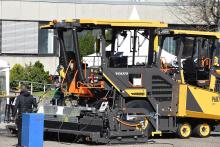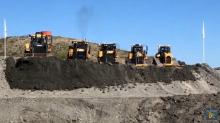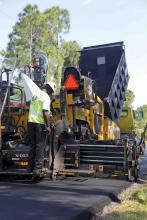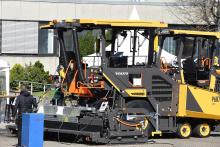Volvo Construction Equipment’s (CE) dealer in the Netherlands, Kuiken, recently hosted a live, five-day demonstration program using a Volvo P7820C ABG paver machine. On a road trip across the country, the Kuiken team visited six different customers, travelling more than 1,700km in total, and clocking up more than 60 hours of paving. “We wanted to test how the market and existing customers, as well as potential ones, would react to the Volvo P7820C ABG machine,” says Arjen Mostert, sales & support manager of
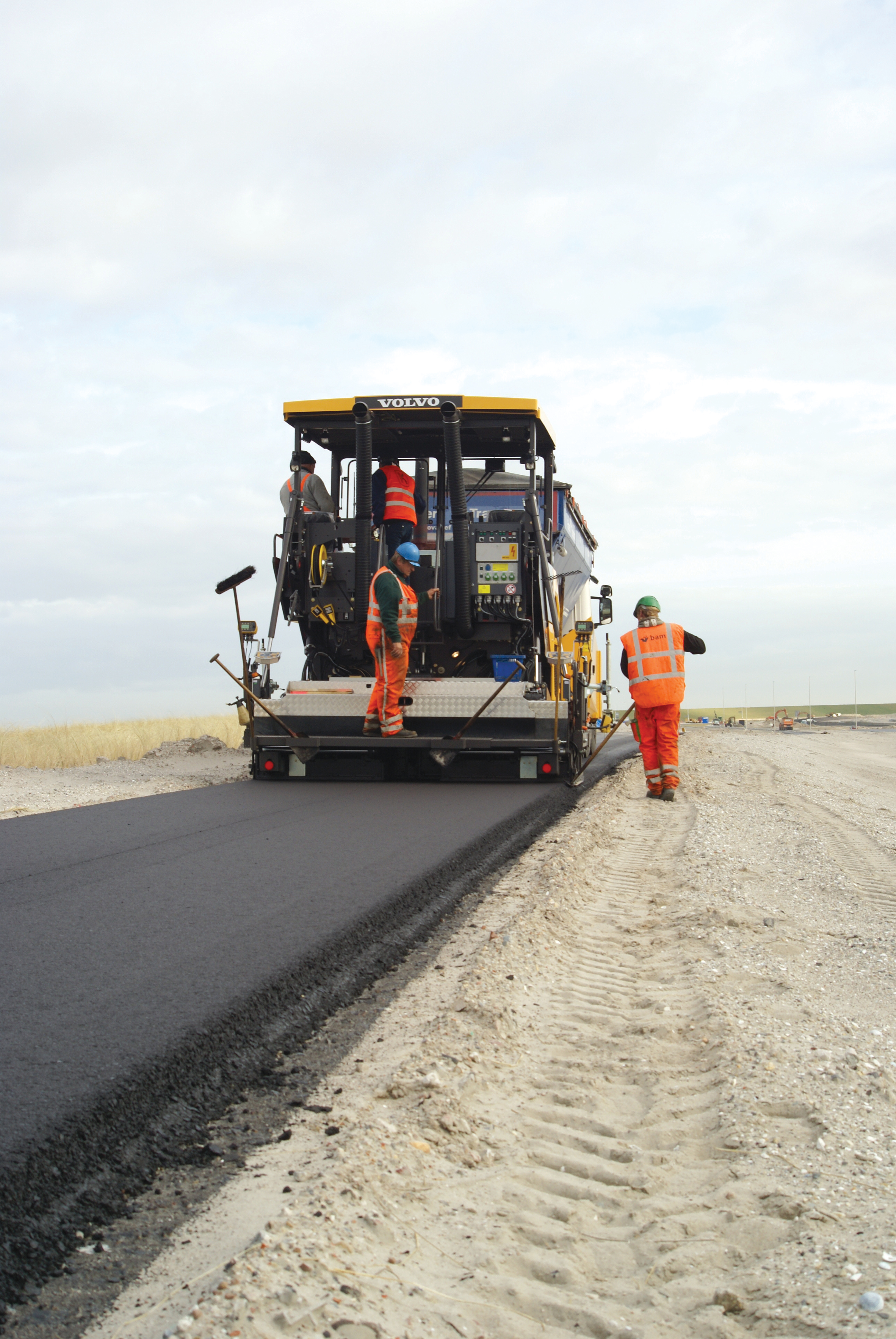
The Volvo P7820C ABG paver produces a smooth straight finish
Volvo Construction Equipment’s (CE) dealer in the Netherlands, Kuiken, recently hosted a live, five-day demonstration program using a Volvo P7820C ABG paver machine.
On a road trip across the country, the Kuiken team visited six different customers, travelling more than 1,700km in total, and clocking up more than 60 hours of paving.“We wanted to test how the market and existing customers, as well as potential ones, would react to the Volvo P7820C ABG machine,” says Arjen Mostert, sales & support manager of road construction at
To show customers what the machine can do, Kuiken asked them to choose a location in The Netherlands where they wanted the team to demonstrate the machine’s smooth paving skills. The team from the dealership including Mostert and demonstrator and mechanic, Freek Jaarsma, began their journey once the machine was loaded onto a truck.
The first demonstration was performed for European construction company, BAM, in Maasvlakte, offering picturesque views of the beach and sea on the south coast. “BAM requested that we use the machine to pave the base course of a cycle lane underneath the final surface layer,” says Mostert. “After five minutes the customer told us the machine was surprisingly quiet and that the screed was very stable because it didn’t vibrate uncomfortably for the operator – the crew could have stood on it all day, which isn’t usually the case.”
The smart power function on the machine reduces engine speed to 1500rpm rather than 1800rpm, which allows for lower noise levels and fuel consumption without any detrimental effect on the performance or power of the machine. In the demonstrations, the new Stage IIIB engine was said to have regenerated without any hindrance on the performance of the machine.
The team also visited Koninklijke Sjouke Dijkstra, a road laying contractor in the north of the Netherlands; Dutch contractor Ooms in two different western locations; Roelofs, a construction company in Holland; and Janssen de Jong Infra, an infrastructure company specialising in asphalt in the south east.
An average of nine hours was spent by the team with each customer, starting before 6am to heat the machine’s screed. “For road machinery demonstrations the conditions have to be just right,” says Mostert. “You need dry conditions in order to lay the asphalt, so we would check the forecast and then if the weather permitted, we would book the demonstration in for the next day and everybody just had to be there.”
At the demonstration sites the machine was paving five metres every minute, meaning the P7820C needed to be fed with new loads of asphalt in steady intervals. Trucks filled with 30tonnes of asphalt feed the paver’s hopper with the material. “Because the driving system is so strong the paver didn’t even move when the asphalt truck lent against it as it was driving forwards – the machine just pushed it away and didn’t even jolt against the weight of the truck,” says Mostert, who adds: “This ensures a smooth transition over to a new load of asphalt – the operator doesn’t have to worry about bumps or an uneven surface.”
About 20 trucks, each carrying the 30tonnes of asphalt, arrived at the job sites one by one. The objective was to keep the trucks arriving continuously to prevent the paver from running low on asphalt. Mostert explains: “It’s so important to keep the machine moving and if the machine breaks down or something goes wrong, the asphalt in the truck that has not been laid goes cold and is then wasted, as it cannot be used below a certain temperature. It suddenly becomes a very expensive business. It’s why you need the reliability of the Volvo P7820C.”
At one of the demonstrations, customer Koninklijke Sjouke Dijkstra, was said to be astonished about the machine’s fuel consumption. Volvo CE’s paver machine was claimed to be using 25-30% less fuel consumption than a competitor’s machine. At the end of the day, both of the machines were refilled and the competitor machine had consumed 210litres but the Volvo CE machine had consumed only 110litres.

